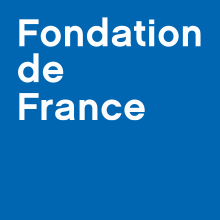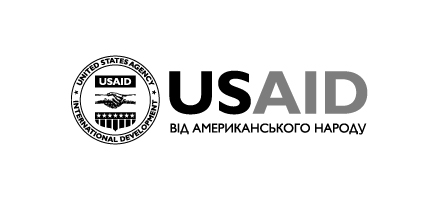
How volunteers from a film club in Kherson organized documentary screenings for Kherson residents despite the constant shellings of the city.
Reprinted from the Sheriffs for New Communities Information Platform.
These screenings were not advertised in advance for security reasons. When a bunch of bravehearts decided to organize film screenings in the frontline Kherson, right under the enemy's nose, as part of the 20th Docudays UA Travelling International Human Rights Documentary Film Festival, the idea was kept in utmost secrecy. Fortunately, everything turned out successful, and in December, the city's residents had a chance to watch two documentaries from the festival's repertoire.

Kherson residents watching the film “Unconquered Kherson” at the center for education and training
IT WAS HARD TO EVEN DARE TO DO THIS
In total, two offline screenings were organized in the city. At least two days, Kherson residents were able to get together, watch a movie and socialize, just like they did before the war. The screenings were also organized by Kherson residents: local volunteers and the Docudays UA film club at the Charitable Organization “Charity and Health Foundation.”
The moderator of the film club, the regional coordinator of the Travelling Docudays UA Festival, lawyer Olena Staryuk works as the manager of the Foundation's public reception. Before the invasion, she organized screenings in the city and throughout the region, counseled citizens, and helped communities of the region with advocacy campaigns.
On July 22, she and her children managed to escape occupied Kherson. At one point, she even lost hope that it was possible. The road was difficult and dangerous. They spent three days sleeping in a car in the middle of a field, but managed to get to the territory controlled by Ukraine.
Once in Poland, Olena Staryuk resumed the film club's activities. “We were put up in a hotel where only Ukrainian women with children lived. I told them where I worked and what I did, and we started organizing meetings there, watching films together. Until then, some of them did not know that documentaries about human rights even existed,” says the moderator.

Olena Staryuk
By the way, in Poland, Olena Staryuk is not only involved in the film club, but also continues to provide legal assistance to her fellow countrymen. “We support all Kherson residents, wherever they are, whether in the occupied or liberated territories. I did not stop counseling even during the occupation. It was dangerous, but I kept on doing it. People have different questions: how to get a birth or death certificate in the occupied territory, resolve issues of inheritance, alimony, get compensation for flooded or damaged property,” enumerates the lawyer.
Indeed, the decision to organize film screenings in Kherson and to hold the Travelling Docudays UA was not easy for her. “I hesitated for a long time. You know what the situation in the city is nowadays. I was worried about exposing anyone to shelling or air raids. This decision was very difficult for me,” admits Olena Staryuk. That's why she decided to consult with Natalia Shatilova, a volunteer from Kherson and head of the NGO “Hromada UA.” Natalia Shatilova immediately accepted the proposal to organize documentary screenings in Kherson. “The people of Kherson really need this,” she assures.

Natalia Shatilova (furthest to the right) with journalists of the “Vhoru” media platform
SECRET SCREENINGS
From that moment on, the organizers had to take care of many life-saving things. After all, Kherson has survived almost 9 months under occupation, and now its residents are separated from the enemy only by the Dnipro river. “In some places, the enemy is just a kilometer and a half away. Unfortunately, the shelling continues around the clock, at any time and with different types of weapons. The city is exposed to everything. Air raids make sense only if they are firing ballistic missiles or rockets. But mortar shelling and artillery arrive in just three seconds, and you don't even have time to go down to the shelter,” says Natalia Shatilova. That's why going for a walk is forbidden here, and people only take quick trips outside when it’s necessary. There is often no electricity or Internet, along with constant shortage of medicines. Of the nearly 300,000 Kherson residents who lived in the city before the war, only about one-sixth of them remain here today.
I ask if the people of Kherson still care about films. “Yes, they do,” says the volunteer, “There is a demand for screenings, training, psychosocial support, art therapy, and workshops. Just to give you an idea, yesterday we launched a Pilates class. We received 90 applications, 90! And we realized that our space simply cannot accommodate more people.”
The space Natalia Shatilova is referring to is a center for education and training. It was opened on the first anniversary of the liberation of Kherson on November 11, 2023. In the center, Kherson residents gather for first aid and mine safety training and attend family workshops. The center also hosted the 20th Docudays UA Travelling International Human Rights Documentary Film Festival at the end of last year.
To prevent any sabotage, everything was kept secret until the last moment. After all, there were precedents in Kherson when humanitarian centers were “hit.” That's why the screenings were not advertised anywhere, and no outsiders knew about them. “We didn't disclose any addresses, geotags, or information about where and what would be held,” says Natalia Shatilova. The place and time of the screenings were announced the day before – all those invited were called by phone. Olena Stariuk recalls: “It was top secret.”

A still from the film “Unconquered Kherson”
“UNCONQUERED KHERSON”
In this way, two film screenings were organized in Kherson. During the first one, the invited guests watched “Unconquered Kherson” by the “Vhoru” Media Platform. This film was chosen by Kherson residents themselves, and one can only imagine how much people were looking forward to this screening. After all, the film had already traveled all over Ukraine and the world, while Kherson residents were able to see it for the first time. The film's protagonists were journalists from the “Vhoru” Media Platform. They recorded everything that happened in the city for a year and a half after the Russian military seized the regional center: rallies of Kherson residents, the occupation and liberation of their hometown, its flooding due to the explosion of the Kakhovka hydroelectric power plant, and daily shelling.
Immediately after the occupation of Kherson, the journalists of the media platform, realizing all the risks, rented a house for the entire team and continued working there in order to avoid going home. In the spring, when anti-Russian rallies were taking place in Kherson and people were being grabbed on the streets, part of the team left. Photographer Oleksandr Korniakov had to hide for a month and a half because Russians were looking for him. He was able to leave the city in mid-August 2022. Due to his photographs, the world saw the horrors of the occupation and the courage and resilience of Kherson residents.
Speaking of courage, the “Vhoru” team was not afraid to come to the screening in their hometown. “When I suggested that some of the team come to the screening, the editorial board decided that the protagonists of the film ‘Unconquered Kherson’ should be there. And most of them came from all over Ukraine,” says Olena Staryuk. Later, photographer Oleksandr Korniakov told her it was the first screening where people smiled, even though the team had traveled to many cities in Ukraine beforehand. “Because who else but the people of Kherson, who survived the occupation, welcomed the Ukrainian army and continue to live under fire, understand everything that is happening on the screen. People even found the strength to smile,” says the film club moderator.
“APOLONIA, APOLONIA”
While the first screening was formal, with people sitting on chairs like in a cinema, the second screening was more cozy, with coffee, beanbags, and long conversations about the present and future. For this screening, Kherson residents chose the film “Apolonia. Apolonia.” This is a portrait of the French artist Apolonia Sokol, whose life the director has been filming for 13 years.
“The story of three women resonated with me, reminding me of the friends I lost in a year. One of them, a volunteer, died when the shelling of Kherson began. She was distributing humanitarian aid near the Red Cross office when the plane arrived. Another one fell ill due to constant stress. We managed to send her to Germany for treatment, but we were unable to save her. Another one just couldn't take it anymore and committed suicide. I watched the film, remembered them, and thought about human aspirations and stories of choosing a life path,” recalls Natalia Shatilova.

Watching the film “Apolonia, Apolonia”
She says that a passionate discussion started after the screening: people exchanged opinions about the film itself and the choices they should make for themselves and their city. In short, they talked about the future.
“We have a lot of rebuilding, revival, and recovery ahead of us. We are now discussing adult education and retraining with the job center. Undoubtedly, the range of services and professions that existed in Kherson before the war will change a lot. In order for people to find jobs and plan their future, they need training and retraining. This means we already have to understand what professions will be in great demand in Kherson,” the head of “Hromada UA” shares her plans.
I asked about her vision of the future Kherson. Unfortunately, it won’t be a resort city. Of course, we will have to forget about tourism for a while. Kherson will no longer be a leisurely, sun-kissed southern city, but has every chance of becoming a logistics center. “You realize that everything is mined, and there will be no access to the river or sea, unfortunately. But we have a history of de-occupation and resistance, we have new trends and new tourist attractions. There are Chornobaivka, Antonivskyi Bridge, there are incredible places of power that have a lot to tell and show,” says Natalia Shatilova.
“Kherson residents are unconquerable and unbreakable, they are an example for everyone. They survived the occupation, now they are suffering from shelling, and still they are united. Nothing can stop them,” believes Olena Staryuk.
Photo from the archive of Olena Stariuk
The development of the DOCU/CLUB Network is funded by the United States Agency for International Development (USAID), the Embassy of Sweden in Ukraine, the National Endowment for Democracy (NED) and Fondation de France.
P.S. The project "Community Law Centers in Ukraine" is implemented by the Charitable Organization "Charity and Health Foundation" and the NGO "Legal Space Information Resource Center" with the support of the Charles Stewart Mott International Foundation. The views expressed in this material are those of the authors and do not necessarily reflect the views of the Charles Stewart Mott International Foundation.
All news




